Part 1 – RAMzine’s Lamestream Lydia speaks with Health’s Jake Duzsik
Health are a noise rock/industrial band hailing from Los Angeles, California. The current lineup features B.J. Miller (Ben) on drums, Jake Duzsik as the vocalist and guitarist, and John Famiglietti playing bass. Their music has been included in several video game soundtracks such as Max Payne 3, Cyberpunk 2077, Grand Theft Auto V, and Ultrakill.
RAMzine caught up with Jake Duzsik on Health’s October 2024 European tour. He shared insights into the collaborative approach taken for their Disco albums and how they choose musicians to collaborate with. Jake also discusses the challenge of balancing individual creativity with the responsibilities that come with being part of a band. He emphasises the importance of ongoing creation—even if it’s not aimed at release—as this practice fosters artistic momentum and keeps creativity flowing.
RAMzine: Welcome back to Manchester! These must be some of your biggest UK shows? How’s it going?
Jake: Good! I mean this is definitely by far the biggest headline show we’ve done in Manchester, I love Manchester!
I know the music is pretty subjective and taste based, but for me the highest concentration of my favorite bands of all time are all from here so we’ve always sort of felt an affinity with this city. So being able to come back and feel like we’ve grown is very gratifying. We’ve been meeting and connecting with more people, so I’m excited to be here!
RAMzine: The way I’ve seen you guys in existence has been kind of peripherally, there’s been lots in media that we’ve connected with over the years, discovering bits you’re involved with. Max Payne, Cyberpunk, and recent discovery Aomic Blonde.
Jake: I think that we’ve existed in some way and are still able to do this by virtue of being supported not just by fans but also by many friends in the music industry who have been boosters for us. This includes music departments at gaming companies or music supervisors who put our music in various projects. That support has allowed us to connect with audiences that are not necessarily strictly based on music, particularly within gaming culture. I believe this may have helped us avoid getting entirely lost in the shuffle of trying to present records and music through a traditional album cycle typical of record companies, which I think is increasingly outdated and doesn’t necessarily work anymore. We’ve been fortunate enough to explore these other avenues through which we can reach people.
To me, it makes sense to describe our role as peripheral or perhaps non-traditional; that’s definitely been part of our career arc.
RAMzine: Regarding collaborators, one of the most significant aspects of your discography consists of the Disco albums featuring a wide array of wonderful musicians that you’ve encountered over the years. How do you decide whom you want to work with? Or do they decide if they want to work with you? It seems like there’s not always a clear answer; sometimes ideas come from a record label or manager?
Jake: It all comes from us. There have been some ideas that might come from a record label or a manager or something like that. In the past, it would have been more about remixes, which were almost entirely us reaching out to people we admire who we think would do a good job reinterpreting our material. Over the last couple of years, the forms of collaboration have shifted to writing original songs together. The number one thing is whether or not we think the two aesthetics could work together in a way that’s functional. There are bands that I’m a fan of and listen to avidly and respect, but it would be hard for me to figure out how to make those pieces fit together. So, the first thing we do is engage in a thought experiment: “Okay, if we were to work on music together, can I imagine at least a starting point for something that could be cool and might work?” So that’s number one.
The best and most organic way is to reach out to someone directly. The most naturalistic and fluid approach is if you already have a prior relationship with them—like if you’re friends, or if you’ve done shows together, or become acquainted in some way. However, we have also cold-called people and personally contacted them via social media. If I feel a little lost about how to make the contact, I’ll just ask someone I know in the industry if they can put us in touch. Then you simply start a dialogue.
The short answer is that we’re incredibly involved in this process. It’s not like a passive situation where someone says, “Hey, you’re going to do a song with this person.” We’re making selections and asking people if they’d be interested based on their fandom and appreciation for what they do. That’s the first part.
RAMzine: The Health sound and aesthetic is kind of an oxymoron, it’s really malleable but it’s also very specific.
Jake: I think that doing some of the scoring work we’ve done, which is becoming more common for traditional band-type musicians, makes you a little more flexible because you understand what it’s like to have the mandate to write music in order to fit something else and enhance it. If you’re looking at visuals, then you’re thinking, “Well, what can we do to contribute here?” Your chief concern can’t just be expressing what you want under your own parameters; you must also consider someone else’s perspective and engage in dialogue. You’re taking notes and discussing it. So I think breaking the ice with that can be tricky for people who haven’t done it before; we’ve had some experience with that.
We’re open-minded. The first couple we worked with were more nerve-racking because it was an unknown. It’s just like any song you start; you don’t know what you’re going to get. You don’t know if it’s going to be good or if it’s something worthwhile pursuing. Is it going to see the light of day? When you introduce another musician to that process, it’s kind of like going on a blind date—you don’t really know if there’s going to be creative chemistry. Even dispositionally, will you get along?
Initially, I think we were more guarded, but now—just like anything in life—if you do something repetitively, it becomes much more naturalistic and there isn’t as much reservation. In the rock world—a traditional band kind of environment—there’s generally a lot more open-mindedness toward collaboration.
If you look at pop music or hip-hop, working with lots of different people and having a pastiche of collaborators while using all aspects of creativity for the overall benefit of a song has been a long-standing practice. In contrast, bands often jealously guard their creative processes and feel that outside contributions are somehow invalidating.
A producer contributes, or someone else adds another line to a song. I don’t give a f*ck about any of that; I just want the music to be as effective as possible and feel like we’re creating the best things. Having that perspective makes it easier for us to say, ‘Yeah, I’ll work with somebody else.’ Also, if it’s something that neither party resonates with, then you don’t have to put it out. It’s just a matter of relaxing a little bit, I think.
We should also become a little less precious about the process because, in my opinion, you can’t do good work unless you’re working. So I like to be in the habit of trying to be as creatively productive as possible.
RAMzine: You say you like to be in the habit of working, what’s the disparity between what’s for you and what’s for Health? Do you still make music for you? The working musician is very different from “I’m me and I’m having fun making music” does it mess with that?
Jake Well, I do a lot of both. Especially since we’ve been on cycle— as the industry would term it— for quite some time, and that’s been very purposeful. I wouldn’t call it arbitrary, but record cycles sort of impose a creative hibernation period. You finish a record, and then as soon as it’s done, it’s like press; you need to shoot music videos and plan a tour before you go on that tour. There is an artfulness to how you’re going to present that new material, but oftentimes it forces musicians into a sort of dormant period where they’re no longer writing. Then they say, “Okay, we’re gonna start writing again.”
I think that almost any habitual activity can be affected by this pattern; this is me speaking from my own perspective because I know everyone has their own creative processes. If you’re in the habit of eating really well or going to the gym or doing whatever else it may be when you fall out of that routine, it’s hard to regain that muscle memory.

A lot of times when you finish a record—unfortunately—you find yourself at a creative zenith in terms of figuring out what kind of sound you’re aiming for and what the lyrical content should be; maybe you even need another song.
I’m a big advocate of having far more songs than you need to comprise a record so that you can generate more and more material to understand what you’re trying to achieve. When you just stop writing, that whole process halts, and it can become difficult to get back into it. What I’ve been trying to do is not let myself stop; this means that maybe I’m just writing something that, in the process of doing it, I’ll know is just for me. It will simply be on a hard drive, and I won’t have any plans to release it because it doesn’t fit within the sound palette or aesthetic of Health. However, in the process of doing that, I might discover a chord progression that I feel is very applicable to Health.
This has been one of the most virtuous aspects of collaborating: I might be banking on numerous jumping-off points for demos and collaborative songs. In my opinion, when you do a collaboration, you don’t want it to be too polished when handing it over to another band; otherwise, you’ll end up with a feature rather than a true collaboration. You’re not going to showcase the style of each band by merely having someone guest on vocals—that’s not what we’re aiming for.
“How do you know you have writer’s block if you’re not trying to write?”
Jake Duzsik, Health
I can’t really do this while on tour, but it’s about working every day or at least several times a week and avoiding falling into the mindset of ‘Oh, I just don’t feel like writing.’ The next thing you know, you’re watching streaming content or some other distraction on your phone instead of getting anything done. I’m not going to go so far as to say there’s no such thing as writer’s block, but how do you know you have writer’s block if you’re not trying to write? You might feel like you’re not getting anywhere, but I guess I just feel that—like I said earlier—you have to work to produce good work. It’s hard to sit around planning to write a really good song and then actually write it; you need to just write them. Some of them aren’t good, so you throw them away. For me, it’s about working all the time.
RAMzine: One of the keys is just piecing away at this piece of ice then eventually you’re going to get a better piece of ice.
Jake: Well, I think that’s true of anything. We can keep the conversation focused on art, and I know there are different forms of art. There’s transformative art, trance-induced experiences—everyone has their own process. It may be very difficult for some people to be artistically engaged, but for me, it can be quite cerebral. I can listen to music, read a novel, or watch a film; something might inspire me on some level that I want to explore without necessarily waiting for a lightning-in-a-bottle moment.
I believe that if you’re a writer, sculptor, or athlete, you can’t improve by simply doing nothing and sitting around. Obviously, art differs from lifting weights or other activities where there’s a scientific metric for gauging progress; however, I still think it’s very much about using those pathways in your brain and trying to stay connected to them regularly.
RAMzine: Staying engaged with art is a form of making art. The back of your brain is going to connect something to what you’re doing. I’ve spent time watching stuff on Shudder and thinking “Okay, I understand this aesthetic, I feel like I could do something with this. Let me grab my piano or guitar and see what I can do with this”.
Jake: Yeah, I think that’s also an important element: staying engaged with and actually listening to music. I think that something people who have been doing this for a long time do is make a record—whether it be an album or a single—not because they want to, but because it’s been a while since they toured and they need a reason to book shows and provide for themselves and their families. You can kind of hear it when they’re not engaged; it’s like they’re not listening to other music or being inspired by what’s happening. It’s almost as if they’re just going through the motions, which I try to avoid too.
I get it; it’s complicated when you make something your job. It can alienate or distance you from what initially made you passionate about it in the first place. I believe one of the antidotes to that is trying to stay interested and engaged.
Part 2: RAMzine’s Chris James Ryan speaks with Health’s Jake Duzsik about mysterious music appearing on artists’ Spotify accounts and Health’s inclusive community.
RAMzine: I discovered Health when you collaberated with Perturbator on ‘Health Excess.’ The most recent collaboration you did was a big one; it was ‘Drain’ with Bad Omens. Are we in store for any more surprises this year?
Jake: We have just released a collaboration with Filter. That’s a classic one—stalwarts of the industrial scene. We’re in the process of writing music. As I referenced before, I would like to avoid having a dormant period. Rat Wars has been the most successful record we’ve put out, so sometimes, from an industry standpoint, people want there to be time to let that breathe and reach as many people as possible. We’ve been trying to do that, but at the same time, I’m anxious to get started on something new and see what’s next. The plan is certainly, in addition to releasing new music, to have a whole slew of new collaborations. I don’t ever divulge who those will be until the track is out.
RAMzine: We’ve noticed that a few times you tend to drop albums out of nowhere. I just tried to check the name; I think it was called ‘Vanished’? You released a chillstep album that appeared out of nowhere?
Jake: I don’t know if you guys are aware of this, but it’s very interesting… There’s a phenomenon that’s been happening lately with certain artists on Spotify: someone has been uploading all these ambient records to artists’ pages. It’s like some sort of attempt to cull plays and collect money. So we did not release a chillstep album, and it has since vanished because Spotify pulls them down. There are some other big artists who have had a couple of these instances where the names sort of made sense, but there were others that were bewildering. (At the time of this interview being conducted) Spotify hasn’t made a statement about how this happens; there was an article in The New Yorker about a guy who created a whole slew of fake bands and uploaded hundreds, perhaps thousands, of AI-generated songs. Algorithmically, there were enough tracks—no middlemen, no publishing deals, no record labels—that if they get into someone’s “Artists Also Like” section and they’re recommending things based on what else you’ve listened to, it gets enough plays. I think he uploaded music worth around six or seven figures. It’s interesting; there was quite an uproar about him “defrauding Spotify.” While Spotify has been very supportive of us, I wouldn’t necessarily call that being defrauded—people are listening to it.
It’s kind of like he found a loophole, but it was considered illegal. I think what happened with this chillwave record is also being investigated. There hasn’t been a statement made. Someone has a grift and thought, ‘F*ck it, let’s just make a bunch of ambient records and tack them onto artists who have monthly listener profiles; then people will check them out.’ With us, it’s plausible because we create all kinds of different music. To be perfectly frank, I would love to make an ambient record and started one at one point with a collaborator whom I won’t name because I want to finish it at some point. So it is totally plausible.
RAMzine: Regarding your music creation process, you say it’s a craft and that you need to keep working on it. When it comes to making music, do you create vocals and audio separately and then sort of mash them together, or do you just think “f*ck it” and have an hour-long session to make something, resulting in a song at the end?
Jake: I think it’s case by case, song by song. Sometimes it’ll begin much more with a production sound or an element we want to create. When we’re later on in the album-making process— even though we know people, especially younger listeners, don’t consume music in long-player album form—we still really care about track listing and maintaining a balanced running order. Questions like “Are there too many slow songs? Do we need an intro? Do we need a cool-down song?” come into play later in the process. If John starts with something or there’s a beat already laid down, I definitely approach things from a more melodic perspective. If it’s starting with a certain production feel, for me to get engaged I need to lay down some kind of chord progression or melodic element within it.
If I’m writing at home and there’s a demo that becomes part of an album record, I’ll write very rudimentarily. I’ll think, “Okay, I just need a beat and tempo that’s workable for this,” then focus heavily on melodies: What kind of vocal melodies are there going to be? What’s the key? Is there going to be an instrumental lead line? What am I singing about? That’s sort of how I approach it; but in a studio setting, it can happen in any order. It could start with a drum beat or some strange sound that’s cinematic that cues me to think, “Oh well this would go well on top of that,” and anything could come in any order.
We’re not a traditional band; it’s not like I’m sitting down and playing everything with an acoustic guitar until it becomes a song—though there are Health songs that start like that. On the last record, ‘Don’t Try,’ the closer started with me messing around at home with an acoustic guitar and piano. However, I also had the idea of wanting to do something specific with that particular track. I wanted to create something without drums. There are certain reference songs I’ve been listening to that might seem really far afield from what it is; for example, with that song I’m listening to ‘Kangaroo’ by This Mortal Coil and ‘Walk on the Wild Side’ by Lou Reed—both of which do not have any drums—as well as 80s Leonard Cohen’s ‘The Future.’
When drums aren’t clouding the stereo spectrum, things become much richer and more spacious. That was the idea behind starting that way. In contrast, another song might begin with John saying, “I want to do a song that’s going to start this crazy subline at 120.” That’s a very different process, and it may involve me decoding, “How the heck do I sing on this?” It just depends.
RAMzine: We previously spoke with Johnny (bass) and Ben (drums). We asked who is in charge of your socials, and they said Jake. So, we want to know: what’s your thought process for posting? Do you just see something funny and think, ‘I like that,’ or is there something more clever behind it?
Jake: So that’s not true, it’s John. John is the social guy, he and this guy Joe that we work with, who does some creative direction stuff for us, are very much a part of this nerd dog, three monitor, zoomer, gamer, meme extravaganza. When we’re on tour, we bring a friend who’s a videographer and we like to make these skits and what it’s like to be on tour so there’s different facets of it.
The other element we have is that we have such an active Discord that now John doesn’t have to spend all that time finding these memes. Our discord sends him a cream of the crop, daily report of “here are the memes that are in the style of your band” and he gets to take the pick of the litter. Now a lot of the ones that are specifically Health memes, we don’t make them, it’s just fans in our discord and they send them to us and we’re like “oh, that’s great” like a Ponzi scheme where we get to delegate the work to other people. That’s John’s world, I kinda just work on music, that’s my thing.
RAMzine: Speaking of Healths social posts… what is cum metal?
A post shared by HEALTH (@_health_)
Jake: That’s from John and that’s his response to baddiecore because he just feels like that’s a better name. There’s an argument to be made for it, what you would normally call proto metal you could call precum metal which I think really works. It’s an attempt to be provocative so it kinda works. I will say he has floated the idea, many times, of trying to get me to call a song ‘cum metal’ and no, I’m not gonna call a song ‘cum metal’. There’s gotta be some kind of goddamn division of seriousness taken with music.
RAMzine: We’re gonna end it with a nice positive note. For the fans, we’d like to say thank you, as a band you have such a huge varied community. It’s a wonderful community of furries, femmeboys, all the LGBTQ, all different walks of life and we all feel united and safe at a Health show. Just look at the ‘Be Quiet and Drive’ music video when you see footage of the crowd all dressed up in what they feel comfortable and that is amazing. I myself, feel more at ease and even kinda badass if that makes sense, like you’ve helped unlock of people’s happiness and creativity to who they want to be so I’d like to say on behalf of your fans, thank you.
Jake: Thank you; that’s very meaningful. That’s what we’re trying to do. We want the shows to be a safe space where people can come as they are and as they want to be— in a non-judgmental environment that is fun and fosters a sense of community. This experience may be distinct from attending a regular show as a punter, where one might think, “Oh, I’m going to wait; I’ll have a beer and then have my internal experience before leaving.” We would prefer it to be something more inclusive.

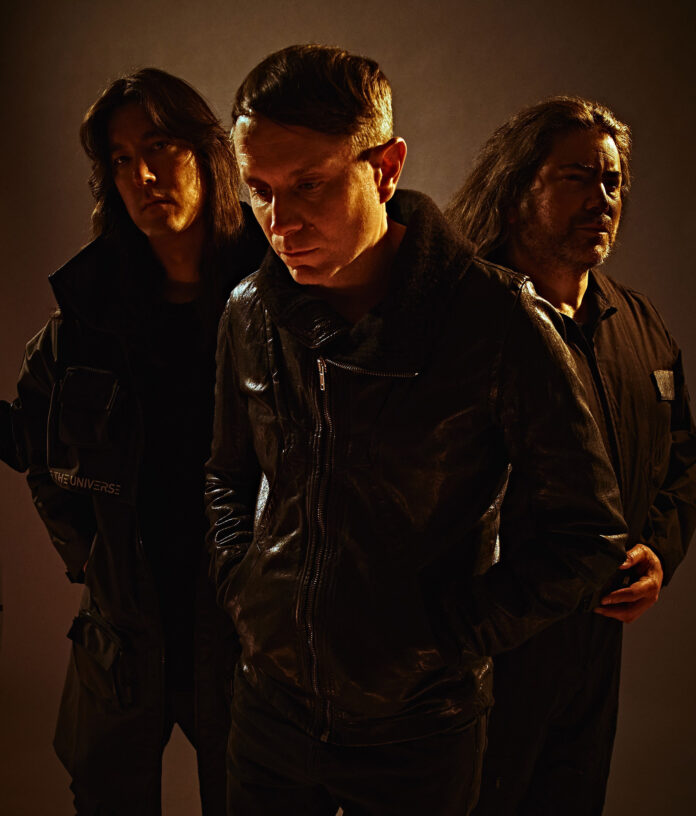
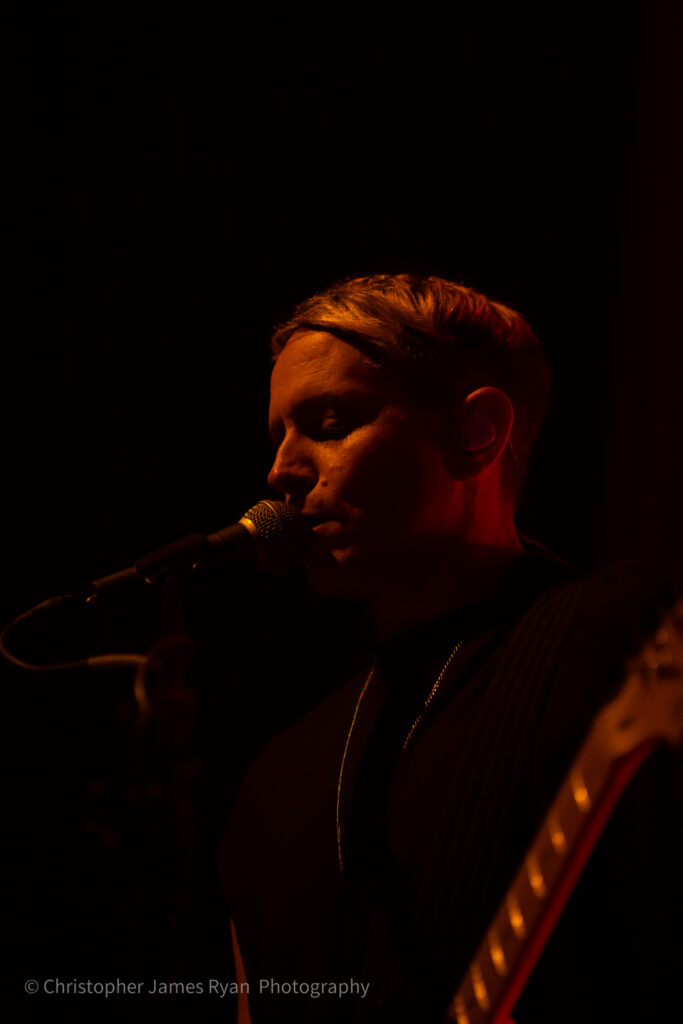




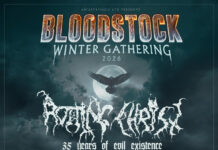

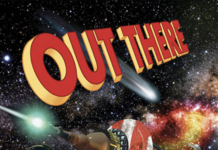









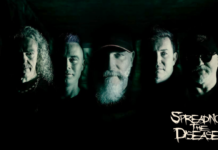
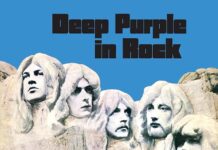
Improve your trading with our assistance:
– smart stock and crypto signals;
– personal trading support;
– risk and money management assistance;
– any specific support in trading.
Details:
https://citycorp.world
Hi,
My name is Ruan, and I’m one of Nathan Coombs’ personal assistants. I wanted to quickly reach out—I promise not to take up too much of your time, but I thought there might be an opportunity here worth exploring.
Nathan is the CEO of SIOB, a company offering innovative IT and marketing solutions to help businesses thrive in today’s competitive world. He’s also the head of IT at BRICS Global Television Network, where we specialize in international partnerships and television features. Additionally, he’s involved with Envico Trading, a mining company focused on gold, and a television production company that produces high-quality shows, documentaries and series.
If any of this resonates with you, or if you’re curious to know more, let me know. I’d be happy to set up a meeting with Nathan to explore potential opportunities.
Looking forward to hearing from you!
Ruan
Just wanted to say that I like what you guys are doing. Some of your content has been helpful.
My friends from Mississaugadaily share your website with me.
Cheers,
Jabez Reuben